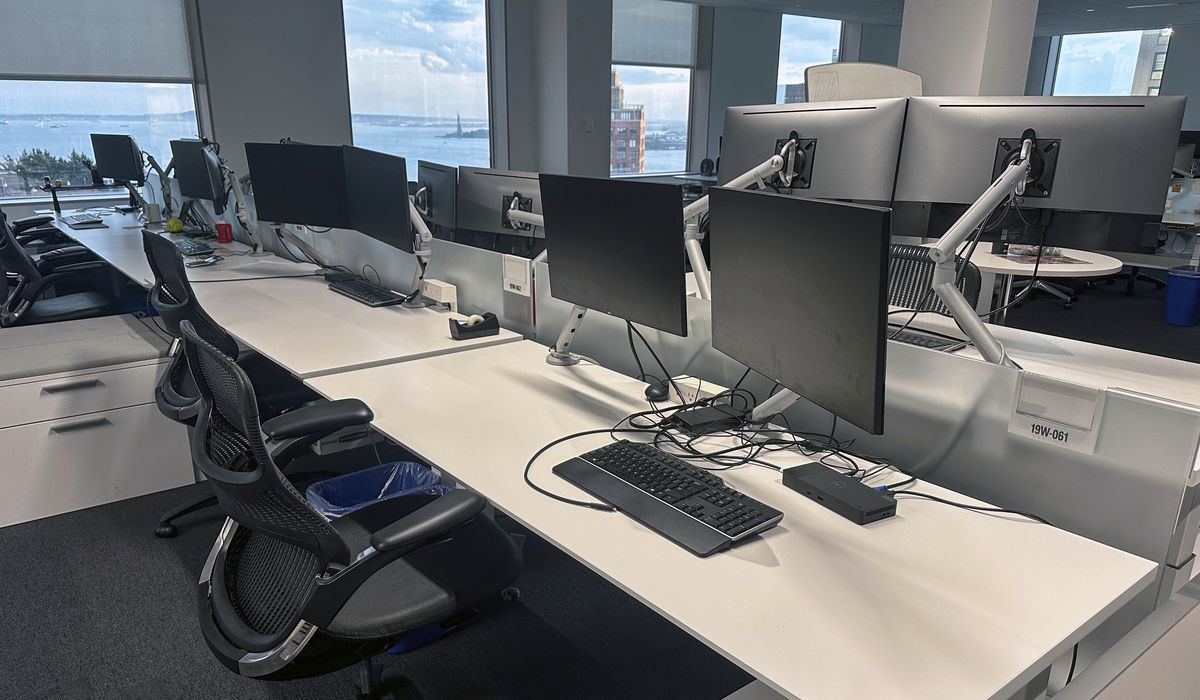House chairman drafts bill to get fed workers back in the office

House Oversight Chairman James Comer is announcing new legislation Thursday to force the federal government to shut down its generous pandemic-era telework policies and get workers back into their offices.
Mr. Comer’s bill would give agencies 30 days to get back to 2019 levels of telework. Offices would then have to start from scratch and submit plans to Congress before they can expand their telework once again.
The bill comes just days before a change in administrations and, if it passes, it could give President-elect Donald Trump additional tools to carry out his demand that federal employees return to their regular work stations.
“The pandemic is long over and it’s past time for the federal workforce to show up to the office to better fulfill agencies’ missions and serve the American people,” Mr. Comer, Kentucky Republican, said.
The bill, dubbed the SHOW UP Act, or Stopping Home Office Work’s Unproductive Problems Act, comes a day after Mr. Comer’s committee released a report looking at the pandemic-fueled growth of telework.
In 2019, before the pandemic, 2% of employees at Health and Human Services worked remotely. By last May it was 29%. The Office of Personnel Management went from 7% to 40%. The Education Department went from 2% to 55%.
Government-wide, telework went from 22% in 2019 to nearly half of the workforce by 2021 and as of September 2023 was still 43%.
Remote work is employees who are not expected to show up at their duty worksite at all during a pay period. Telework is employees who are supposed to work some days at their agency worksite and some days elsewhere during a regular pay period.
Mr. Comer’s committee report included a photograph of the parking lot at 11 a.m. on a regular workday at Social Security’s main headquarters. The lot was virtually empty.
At a hearing Wednesday, Mr. Comer said there’s scant evidence that telework benefits taxpayers, and the angry calls from constituents to congressional offices complaining about struggles to get a response from federal agencies suggests telework is hurting things.
His bill would require agencies to do an after-action report on their pandemic telework experience looking at what impact it had on their delivery of services.
And agencies that want to expand beyond pre-pandemic levels would have to submit a report to Congress detailing the expected improvements in their mission and savings to taxpayers.
A version of the bill cleared the GOP-controlled House in early 2023 on a nearly party-line vote.
The Democrat-led Senate never took it up.
Republicans took control of the Senate earlier this month and there seems to be a significant appetite to pass a bill.
Sen. John Kennedy, Louisiana Republican, announced Wednesday that he has filed legislation to require at least 80% of each agency’s employees work in-person for the full work week. It would also order agencies to use at least 60% of their office space or else relinquish it.
The feds’ slow pace in getting workers back in offices clashes with the private sector, where businesses are enforcing return-to-work orders.
“The federal government is way out of balance,” former Rep. Thomas M. Davis III told Mr. Comer’s committee in Wednesday’s hearing.
But Mika Cross, who studies the federal workforce, said the government needs to offer telework opportunities to compete with the private sector, particularly in cyber and technology fields.
She said forcing a return to the office is going to cost the government some of its best.
“They’re not going to push out the ones you want to hold accountable,” she told the committee.




